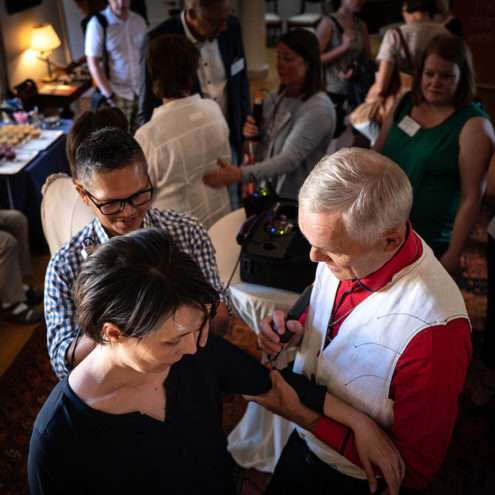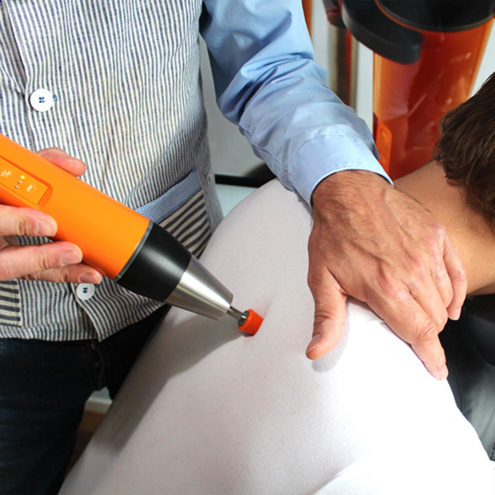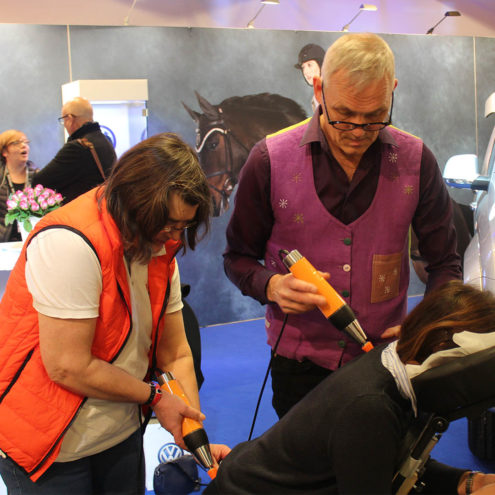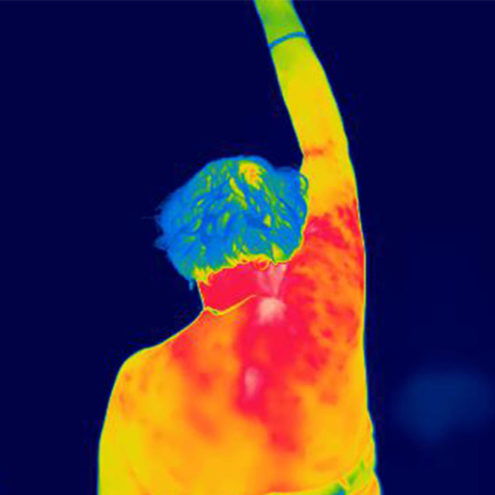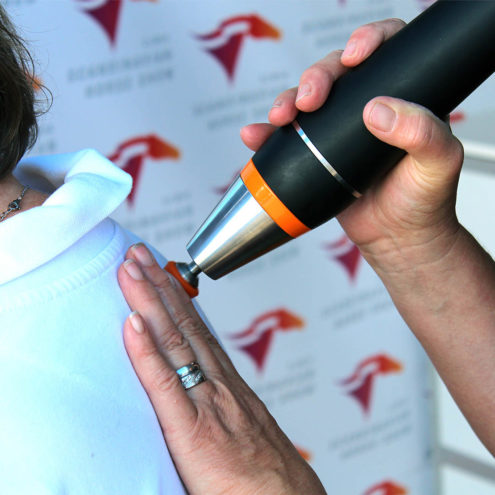Inflammation of the shoulder
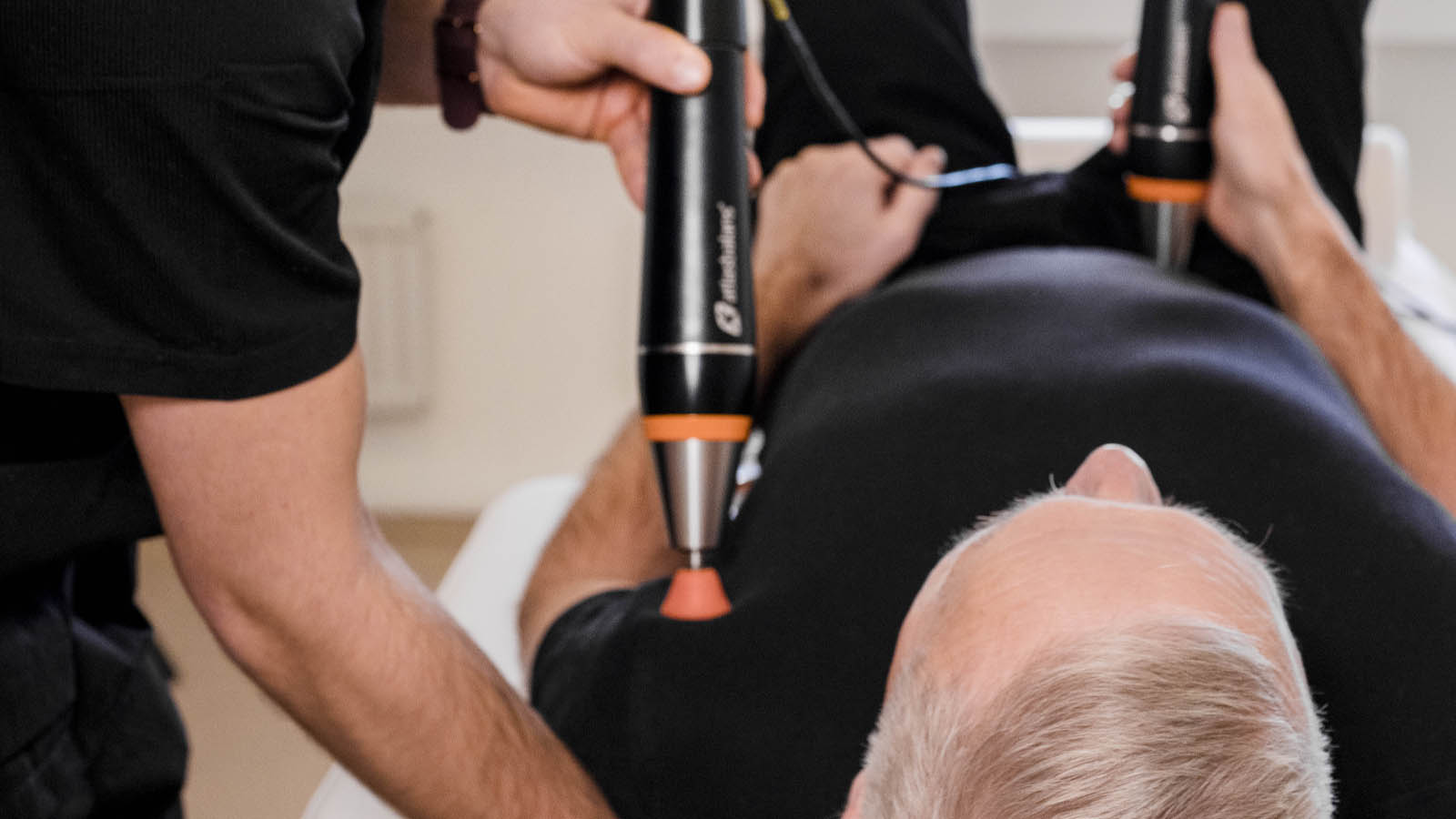
The shoulder is a compound joint consisting of the joint between the upper arm and the scapula (glenohumeral joint), the joint between the scapula and the clavicle (acromioclavicular joint) and the joint between the sternum and the clavicle (sternoclavicular joint). The sliding movement of the scapula on the ribs can also be included as a fourth joint. Shoulder movements are affected by posture. Pelvic balance is of paramount importance, as is the function of the neck and thoracic spine. An imbalance, dysfunction in one place leads to compensations and problems in other places.
Inflammation of the various structures of the shoulder can cause major problems in everyday life as it hurts to move the arm and perform certain everyday tasks. For example, it can be difficult to take things out of a cupboard and put them back in, to put on a jacket or sweater, to wash, to put on deodorant, and so on. In addition, the pain may make it difficult to sleep and perhaps impossible to lie on the side with the sore shoulder.
Inflammation is usually caused by trauma or overuse, where the shoulder has been subjected to repeated, higher loads than it was trained for. You may have performed a job with monotonous movement of the arm a little too much, more than you should in untrained condition, for example shoveling gravel or snow, digging in the garden, etc. If you are also a little older, the body may be a little more fragile and can withstand less.
Symptoms of inflammation of the shoulder
Symptoms of shoulder inflammation include pain, both when moving and at rest, for example when sleeping. You may also feel that your shoulder joint is warmer and tender to pressure at certain points.
What can cause inflammation of the shoulder and shoulder joint?
Shoulder strain is most often caused by inflammation of the shoulder. You may have been performing repetitive tasks for a long time, where the shoulder is exposed to the same movement and too much strain.
A shoulder can also be overloaded in everyday activities if the whole body is out of balance, constantly putting more strain on one shoulder. Poor, slouched posture due to pelvic obliquity can thus overload one shoulder and cause inflammation.
Another cause of inflammation in the shoulder is trauma, such as a fall on the shoulder, which can cause inflammation. Depending on the injury, different structures may become inflamed, such as the joint capsule, muscle attachments, a tendon or bursa.
The shoulder joint can also be affected by so-called impingement, where various structures in the shoulder, muscles, tendons, bursas, become trapped between the upper arm and the upper part of the shoulder blade.
Inflammation of the shoulder resulting in reduced movement can also cause frozen shoulder, which starts with inflammation and severe pain. The pain prevents movement of the shoulder, which then becomes increasingly stiff.
When and where should I seek treatment for shoulder inflammation?
In order to prevent the shoulder from stiffening further, when the pain in the shoulder joint keeps it still, it is good to seek help for a Fascia treatment at a Fascia clinic. The treatment addresses imbalances in the pelvis, shoulders and other posture to avoid misalignment, which ultimately also affects the shoulders. With gentle vibrations, the flow in the fascia is improved, which affects balance and posture and improves shoulder mobility. Adjustments to the shoulder joint using gentle methods and gentle vibration improve shoulder function. The flow in the shoulder is helped to get going and the body’s own healing can become possible.
You should not wait too long to seek help. The longer you walk with shoulder pain, the more your shoulder stiffens due to immobility and other problems may also arise as a result of new compensations.
What can I do myself in case of inflammation of the shoulder
Movement is important for the function of the shoulder so it is important to gently exercise mobility without strain on the shoulder, and to do so daily. It is not good to keep the shoulder still for too long, but the exercise must not be too painful either. If the shoulder is not used, the muscles quickly atrophy and weaken.
Inflammation of the shoulder – Exercises
It is important to gently move the shoulder daily so that mobility does not deteriorate too much. Relaxation exercises with deep breathing are beneficial for the whole body and also have a positive effect on posture.
The exercise of stretching your arms upwards towards the ceiling and “picking apples” increases flow in your arms and strengthens your back stability. So does standing on all fours and doing diagonal lifts with arms and legs.
 Search
Search



